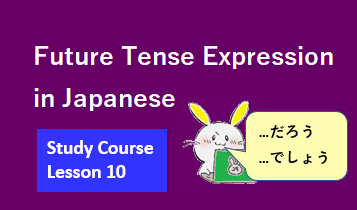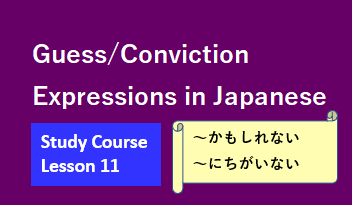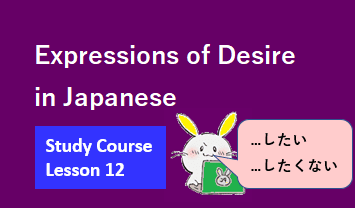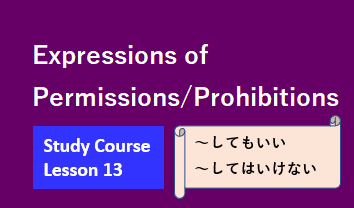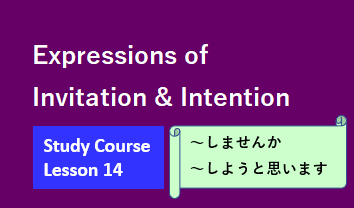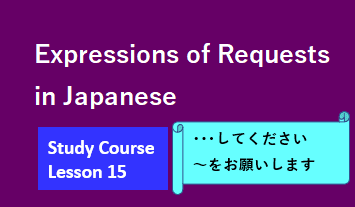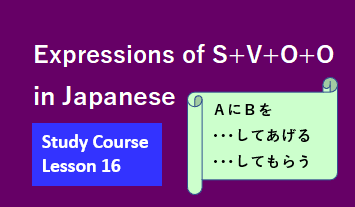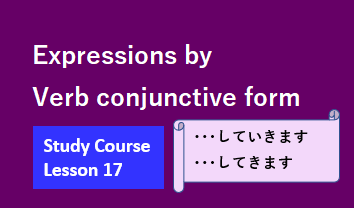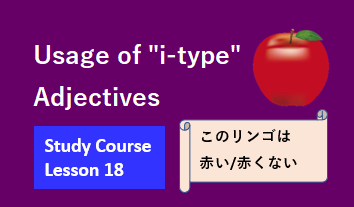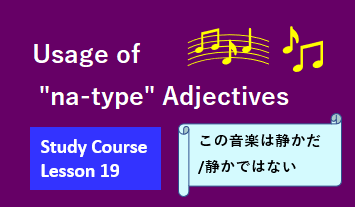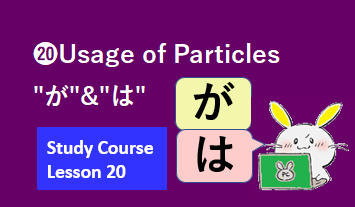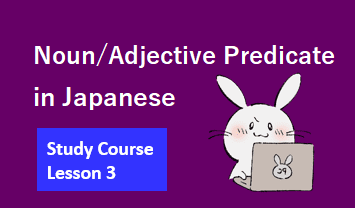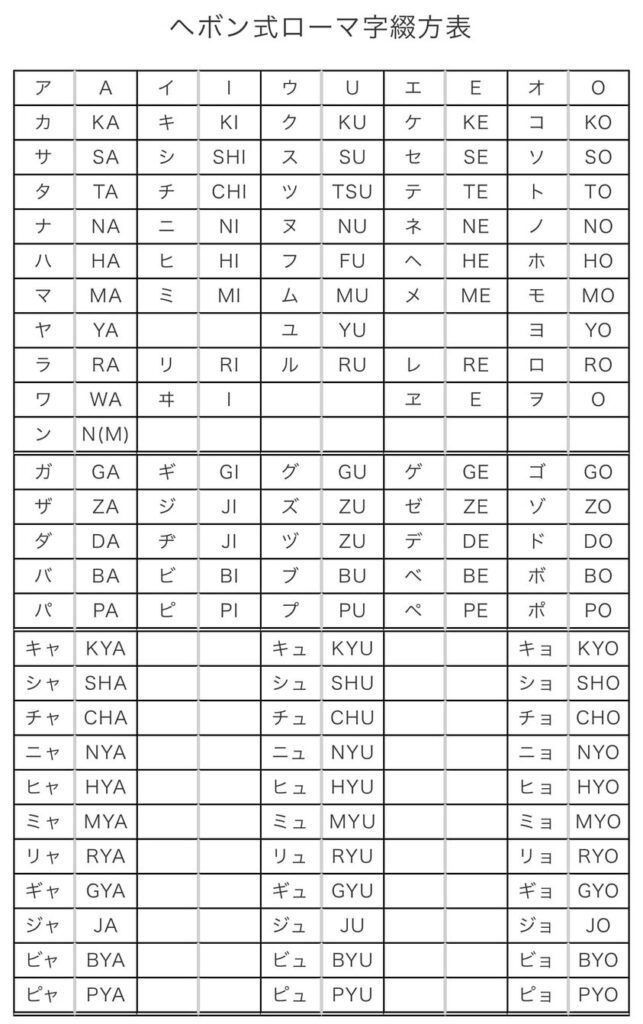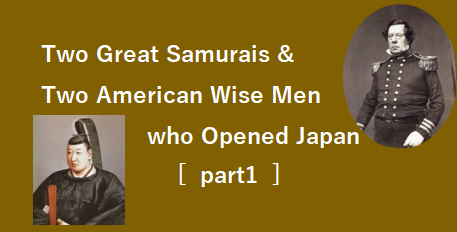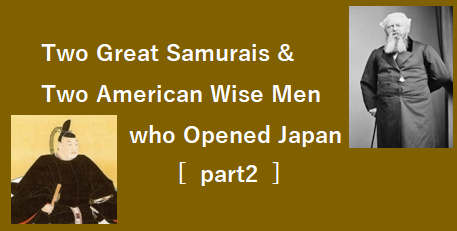Introduction

Hello everyone. I'm Lady JJ. Nice to meet you! Welcome to Japanese Study Course. I will be in charge of the Japanese course, so please call me "JJ". Come on, let's start the Japanese course together!
Today, it is no exaggeration to say that English is truly the common language of the world, and many people around the world understand it. We have created and introduced English versions of some short historical essay contents, but as a new project, we decided to create and provide original English content, that is "Japanese Study Course in English."
Nice to meet you! I'm Rabbit boy. Call me "Rabbit." I will join this course!


Welcome, Rabbit! I do my best to provide more effective and efficient study methods and contents that will help you improve your skills in a short period of time.

By the way, currently, many teaching materials for foreigners to advance their Japanese learning have been announced, however, there are too many teaching materials that simply teach Japanese grammar in Japanese. I feel that there are almost no materials that explain from a foreigner's point of view.

We decided to offer a study course that explains Japanese grammar in English in an easy-to-understand manner. These courses are free and open to the public.
Wow! Free is great! I can study without any worries.


Why don't you take this opportunity to study Japanese? If you study this course, you will acquire knowledge of Japanese grammar in a short period of time. The best feature of the course is that it is designed so that you can naturally acquire knowledge by lying down at home and reading the content while looking at your mobile phone or tablet. You don't have to concentrate and study at your desk. Please try it.
Let's study with me. Come on, it's a competition to see who can improve faster!
For your reference, here is a list of katakana. This table is called the Hepburn Romanization, and is the most popular format used by the Japanese Ministry of Foreign Affairs for issuing Japanese passports.


We have good news for you!
In Ryusho Kanbe's room, we have just introduced the text-to-speech software "Ondoku-san". Please make full use of the Japanese audio and further improve your Japanese language skills.
Created By ondoku3.com
List of Contents
Please click on the featured image for each lesson.
Lesson 1 Basic Pronouns
In lesson1, we will study pronouns which are the basis of grammar. Now, let's check the list of personal pronouns, possessive pronouns, demonstrative pronouns, and interrogative pronouns.
Lesson 2 Modification of Nouns
In lesson2, modifying nouns with pronouns, other nouns, to-infinitives, participles and relative pronouns. Example, in Japanese usage, 'noun + "の" + noun', as in '先生の辞書'.
Lesson 3 Noun/Adjective Predicate
In lesson3, "A は B です" is called a noun predicate sentence. - "A は B が好きです" is called an adjective predicate sentence. "好きです" consists of 'Adject + Auxiliary verb'. No verb
Lesson 4 Verbal Predicate
In lesson4, Japanese grammatical constructions like "A は B を・・・。" are called verbal predicate sentences. The predicate part "・・・" consists of 'a verb + an auxiliary verb'.
Lesson 5 Past Tense of Verbs
In lesson5, if you want to say, "I bought two dictionaries." in Japanese, you would normally say "私は2冊辞書を買った。" To put it politely, it's "私は2冊辞書を買いました。"ます" ➡Past tense "ました"
Lesson 6 Present/Past Progressive Tenses
In lesson6, if you want to say, "I am watching my favorite TV program." in Japanese, you would normally say "私はお気に入りのテレビ番組を見ています。". For past tense, "私は昨日昼まで日本語を勉強していました。"
Lesson 7 Situational Expressions
In lesson 7, verb expressions that indicate the situation have the same form as the present progressive tense. However, that is not progressive action but shows situation.
Lesson 8 Possible Expressions [1]
In lesson 8, if you want to say, "I can speak English." in Japanese, you would politely say "私は英語ができます。". In another Japanese expression, you would say "私は英語を話すことができます。".
Lesson 9 Possible Expressions [2]
In lesson 9, we will study verbs that indicate "possible" in Japanese. The verb "買う(buy)" was studied in lesson 5, let me introduce a verb "買える" that indicate "can buy".
Lesson 10 Future Tense Expressions
In lesson10, "Shohei Ohtani will not pitch in the baseball game tomorrow." in Japanese, you would normally say "大谷翔平は明日の野球の試合で投げないだろう。". Future tense same as present tense.
Lesson 11 Guess/Conviction Expressions
In lesson 11, we will study the following expressions: (1) Possibility Guess (May be), (2) Subjective Conviction (Must be), (3) Objective Conjecture (Should be).
Lesson 12 Expressions of Desire
In lesson12, about expressions of desire, if you want to say, "I want to go on a trip with my friends during the summer vacation." in Japanese, you say "私は夏休みに友達と旅行がしたいです。".
Lesson 13 Expressions of Permissions and Prohibitions
In lesson13, we will study the expressions of permissions and prohibitions. "Can I go to Shibuya with my friends tomorrow?" in Japanese, you can say "私は明日、友達と渋谷に行ってもいいですか。".
Lesson 14 Expressions of Invitation & Intention
In lesson14, let's study the expressions of invitation & intention such as "Would you like to…/ Let's do…" for invitation & "I would like to…/ I'm going to…" for intention.
Lesson 15 Expressions of Requests
In lesson 15, let's study expressions of requests such as "Please do …" or "Will you please do…". If you want to say, "Please open the window." in Japanese, "窓を開けてください。".
Lesson 16 Expressions "S+V+O+O"
In lesson16, let's study expressions with two objects such as the pattern S+V+O+O like "I will give her a birthday present." You say "私は彼女に誕生日のプレゼントをあげようと思います。" in Japanese.
Lesson 17 Expressions by Verb conjunctive form
In lesson 17, we'll review the Expressions by verb conjunctive form we have already studied before. Also let's study new usages such as "・・・していきます/・・・してきます" .
Lesson 18 Usage of "i-type" adjectives
In lesson 18, two types of Japanese adjectives: i-type and na-type. In Lesson 18, we study the usage of i-type adjectives. ex:"赤いリンゴ(a red apple)" or "高い山(a high mountain)".
Lesson 19 Usage of "na-type" adjectives
In lesson19, let's study "Usage of na-type adjectives." For example, "きれいな先生", "静かな音楽". They can also be used as an adjective predicate sentence, such as "この音楽は静かだ/静かではない。".
Lesson 20 Usage of Particles "が"&"は"
In Lesson 20, we will study the usage of particle "が" & "は". These two particles are similar in usage, so we will explain in detail how to use them differently.





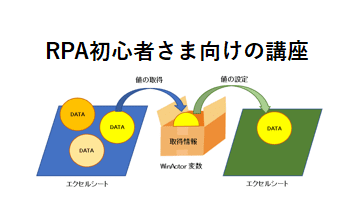


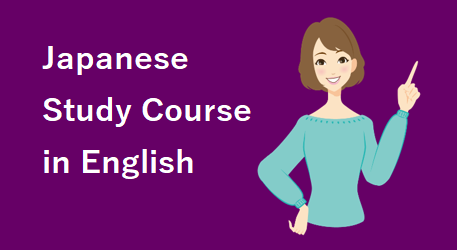


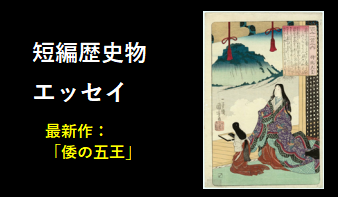
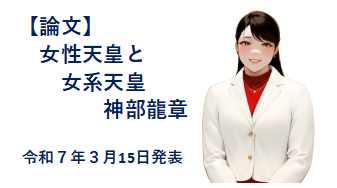

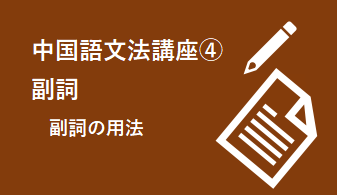


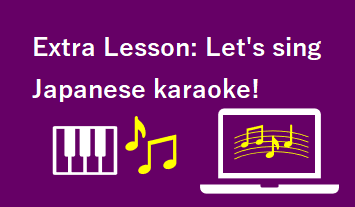
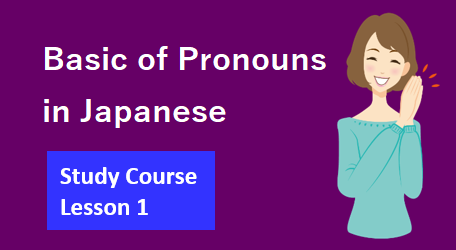
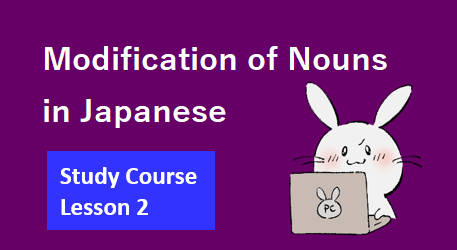

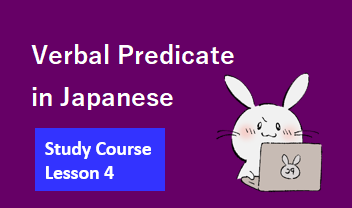
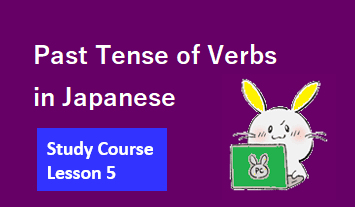
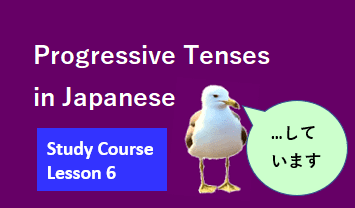
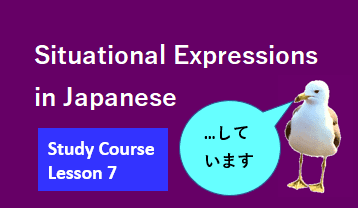
![❽Possible Expressions [1]](https://ryusho-kanbe.com/wp-content/uploads/2023/04/スクリーンショット-2023-04-03-100754.png)
![❾Possible Expressions [2]](https://ryusho-kanbe.com/wp-content/uploads/2023/04/スクリーンショット-2023-04-28-095816.png)
